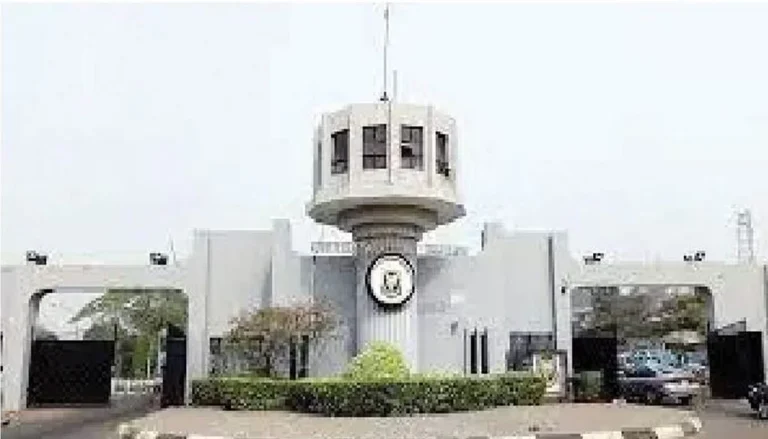
On Tuesday, the Nigeria Labour Congress (NLC) is set to begin a two-day warning strike, which the Nigerian government hopes to prevent.
The NLC claims the government has stopped responding to their requests for negotiations and has ignored previous agreements reached.
In addition to the police siege on the National Union of Road Transport Workers’ national headquarters, the union has listed six other grievances, such as the Abia State Government’s interference in union matters and the proposed demolition of homes by the Minister of the Federal Capital Territory, Nyesom Wike.
See also: NLC Issues Two-Day Strike Notice Over the Impact of Fuel Subsidies
The government reportedly expressed willingness to meet with the NLC on Monday in an effort to prevent the strike through negotiation.
Mohammad Idris, minister of information and national orientation, said the government is “hoping the warning strike can be averted” and that both sides are “still engaged in discussions and have started to understand each other’s position more.”
The NLC says it is willing to negotiate, but that there will be “no going back” on the two-day warning strike.
Union chief Joe Ajaero has justified the walkout by saying it’s essential to “cushion the effects of the removal of petrol subsidy on the ‘poor masses'” and “address the excruciating mass suffering and impoverishment being experienced around the country.”
The strike may cause major disruptions in the transportation, manufacturing, and other sectors of the Nigerian economy. A strike would be a major setback for the government’s economic reform agenda, so they’re hoping to prevent it.
On Monday, the two parties will get together to try and work out a compromise. The strike will begin on Tuesday if they are unable to reach an agreement.
Assistant National Secretary Christopher Onyeka said that the union has not been invited to any meetings with the government but is open to having them.
“The labour movement is a talking shop where agreements are made. The government has been the one ducking out on the table, not us.
On Tuesday, the Nigeria Labour Congress (NLC) is set to begin a two-day warning strike, which the Nigerian government hopes to prevent.
The NLC claims the government has stopped responding to their requests for negotiations and has ignored previous agreements reached.
In addition to the police siege on the National Union of Road Transport Workers’ national headquarters, the union has listed six other grievances, such as the Abia State Government’s interference in union matters and the proposed demolition of homes by the Minister of the Federal Capital Territory, Nyesom Wike.
See also: NLC Issues Two-Day Strike Notice Over the Impact of Fuel Subsidies
The government reportedly expressed willingness to meet with the NLC on Monday in an effort to prevent the strike through negotiation.
Mohammad Idris, minister of information and national orientation, said the government is “hoping the warning strike can be averted” and that both sides are “still engaged in discussions and have started to understand each other’s position more.”
The NLC says it is willing to negotiate, but that there will be “no going back” on the two-day warning strike.
Union chief Joe Ajaero has justified the walkout by saying it’s essential to “cushion the effects of the removal of petrol subsidy on the ‘poor masses'” and “address the excruciating mass suffering and impoverishment being experienced around the country.”
The strike may cause major disruptions in the transportation, manufacturing, and other sectors of the Nigerian economy. A strike would be a major setback for the government’s economic reform agenda, so they’re hoping to prevent it.
On Monday, the two parties will get together to try and work out a compromise. The strike will begin on Tuesday if they are unable to reach an agreement.
Assistant National Secretary Christopher Onyeka said that the union has not been invited to any meetings with the government but is open to having them.
“The labour movement is a talking shop where agreements are made. The government has been the one ducking out on the table, not us.
On Tuesday, the Nigeria Labour Congress (NLC) is set to begin a two-day warning strike, which the Nigerian government hopes to prevent.
The NLC claims the government has stopped responding to their requests for negotiations and has ignored previous agreements reached.
In addition to the police siege on the National Union of Road Transport Workers’ national headquarters, the union has listed six other grievances, such as the Abia State Government’s interference in union matters and the proposed demolition of homes by the Minister of the Federal Capital Territory, Nyesom Wike.
See also: NLC Issues Two-Day Strike Notice Over the Impact of Fuel Subsidies
The government reportedly expressed willingness to meet with the NLC on Monday in an effort to prevent the strike through negotiation.
Mohammad Idris, minister of information and national orientation, said the government is “hoping the warning strike can be averted” and that both sides are “still engaged in discussions and have started to understand each other’s position more.”
The NLC says it is willing to negotiate, but that there will be “no going back” on the two-day warning strike.
Union chief Joe Ajaero has justified the walkout by saying it’s essential to “cushion the effects of the removal of petrol subsidy on the ‘poor masses'” and “address the excruciating mass suffering and impoverishment being experienced around the country.”
The strike may cause major disruptions in the transportation, manufacturing, and other sectors of the Nigerian economy. A strike would be a major setback for the government’s economic reform agenda, so they’re hoping to prevent it.
On Monday, the two parties will get together to try and work out a compromise. The strike will begin on Tuesday if they are unable to reach an agreement.
Assistant National Secretary Christopher Onyeka said that the union has not been invited to any meetings with the government but is open to having them.
“The labour movement is a talking shop where agreements are made. The government has been the one ducking out on the table, not us.
On Tuesday, the Nigeria Labour Congress (NLC) is set to begin a two-day warning strike, which the Nigerian government hopes to prevent.
The NLC claims the government has stopped responding to their requests for negotiations and has ignored previous agreements reached.
In addition to the police siege on the National Union of Road Transport Workers’ national headquarters, the union has listed six other grievances, such as the Abia State Government’s interference in union matters and the proposed demolition of homes by the Minister of the Federal Capital Territory, Nyesom Wike.
See also: NLC Issues Two-Day Strike Notice Over the Impact of Fuel Subsidies
The government reportedly expressed willingness to meet with the NLC on Monday in an effort to prevent the strike through negotiation.
Mohammad Idris, minister of information and national orientation, said the government is “hoping the warning strike can be averted” and that both sides are “still engaged in discussions and have started to understand each other’s position more.”
The NLC says it is willing to negotiate, but that there will be “no going back” on the two-day warning strike.
Union chief Joe Ajaero has justified the walkout by saying it’s essential to “cushion the effects of the removal of petrol subsidy on the ‘poor masses'” and “address the excruciating mass suffering and impoverishment being experienced around the country.”
The strike may cause major disruptions in the transportation, manufacturing, and other sectors of the Nigerian economy. A strike would be a major setback for the government’s economic reform agenda, so they’re hoping to prevent it.
On Monday, the two parties will get together to try and work out a compromise. The strike will begin on Tuesday if they are unable to reach an agreement.
Assistant National Secretary Christopher Onyeka said that the union has not been invited to any meetings with the government but is open to having them.
“The labour movement is a talking shop where agreements are made. The government has been the one ducking out on the table, not us.
On Tuesday, the Nigeria Labour Congress (NLC) is set to begin a two-day warning strike, which the Nigerian government hopes to prevent.
The NLC claims the government has stopped responding to their requests for negotiations and has ignored previous agreements reached.
In addition to the police siege on the National Union of Road Transport Workers’ national headquarters, the union has listed six other grievances, such as the Abia State Government’s interference in union matters and the proposed demolition of homes by the Minister of the Federal Capital Territory, Nyesom Wike.
See also: NLC Issues Two-Day Strike Notice Over the Impact of Fuel Subsidies
The government reportedly expressed willingness to meet with the NLC on Monday in an effort to prevent the strike through negotiation.
Mohammad Idris, minister of information and national orientation, said the government is “hoping the warning strike can be averted” and that both sides are “still engaged in discussions and have started to understand each other’s position more.”
The NLC says it is willing to negotiate, but that there will be “no going back” on the two-day warning strike.
Union chief Joe Ajaero has justified the walkout by saying it’s essential to “cushion the effects of the removal of petrol subsidy on the ‘poor masses'” and “address the excruciating mass suffering and impoverishment being experienced around the country.”
The strike may cause major disruptions in the transportation, manufacturing, and other sectors of the Nigerian economy. A strike would be a major setback for the government’s economic reform agenda, so they’re hoping to prevent it.
On Monday, the two parties will get together to try and work out a compromise. The strike will begin on Tuesday if they are unable to reach an agreement.
Assistant National Secretary Christopher Onyeka said that the union has not been invited to any meetings with the government but is open to having them.
“The labour movement is a talking shop where agreements are made. The government has been the one ducking out on the table, not us.
On Tuesday, the Nigeria Labour Congress (NLC) is set to begin a two-day warning strike, which the Nigerian government hopes to prevent.
The NLC claims the government has stopped responding to their requests for negotiations and has ignored previous agreements reached.
In addition to the police siege on the National Union of Road Transport Workers’ national headquarters, the union has listed six other grievances, such as the Abia State Government’s interference in union matters and the proposed demolition of homes by the Minister of the Federal Capital Territory, Nyesom Wike.
See also: NLC Issues Two-Day Strike Notice Over the Impact of Fuel Subsidies
The government reportedly expressed willingness to meet with the NLC on Monday in an effort to prevent the strike through negotiation.
Mohammad Idris, minister of information and national orientation, said the government is “hoping the warning strike can be averted” and that both sides are “still engaged in discussions and have started to understand each other’s position more.”
The NLC says it is willing to negotiate, but that there will be “no going back” on the two-day warning strike.
Union chief Joe Ajaero has justified the walkout by saying it’s essential to “cushion the effects of the removal of petrol subsidy on the ‘poor masses'” and “address the excruciating mass suffering and impoverishment being experienced around the country.”
The strike may cause major disruptions in the transportation, manufacturing, and other sectors of the Nigerian economy. A strike would be a major setback for the government’s economic reform agenda, so they’re hoping to prevent it.
On Monday, the two parties will get together to try and work out a compromise. The strike will begin on Tuesday if they are unable to reach an agreement.
Assistant National Secretary Christopher Onyeka said that the union has not been invited to any meetings with the government but is open to having them.
“The labour movement is a talking shop where agreements are made. The government has been the one ducking out on the table, not us.
On Tuesday, the Nigeria Labour Congress (NLC) is set to begin a two-day warning strike, which the Nigerian government hopes to prevent.
The NLC claims the government has stopped responding to their requests for negotiations and has ignored previous agreements reached.
In addition to the police siege on the National Union of Road Transport Workers’ national headquarters, the union has listed six other grievances, such as the Abia State Government’s interference in union matters and the proposed demolition of homes by the Minister of the Federal Capital Territory, Nyesom Wike.
See also: NLC Issues Two-Day Strike Notice Over the Impact of Fuel Subsidies
The government reportedly expressed willingness to meet with the NLC on Monday in an effort to prevent the strike through negotiation.
Mohammad Idris, minister of information and national orientation, said the government is “hoping the warning strike can be averted” and that both sides are “still engaged in discussions and have started to understand each other’s position more.”
The NLC says it is willing to negotiate, but that there will be “no going back” on the two-day warning strike.
Union chief Joe Ajaero has justified the walkout by saying it’s essential to “cushion the effects of the removal of petrol subsidy on the ‘poor masses'” and “address the excruciating mass suffering and impoverishment being experienced around the country.”
The strike may cause major disruptions in the transportation, manufacturing, and other sectors of the Nigerian economy. A strike would be a major setback for the government’s economic reform agenda, so they’re hoping to prevent it.
On Monday, the two parties will get together to try and work out a compromise. The strike will begin on Tuesday if they are unable to reach an agreement.
Assistant National Secretary Christopher Onyeka said that the union has not been invited to any meetings with the government but is open to having them.
“The labour movement is a talking shop where agreements are made. The government has been the one ducking out on the table, not us.








https://interpharm.pro/# candaian pharmacy
online canadian pharmacy no prescription – internationalpharmacy.icu A pharmacy that keeps up with the times.
acheter mГ©dicaments Г l’Г©tranger Pharmacie en ligne livraison rapide Acheter mГ©dicaments sans ordonnance sur internet
https://farmaciabarata.pro/# farmacia online madrid
http://farmaciaonline.men/# comprare farmaci online all’estero
http://onlineapotheke.tech/# online apotheke gГјnstig
http://itfarmacia.pro/# farmacie on line spedizione gratuita
Viagra sans ordonnance 24h
https://esfarmacia.men/# farmacias baratas online envГo gratis
п»їpharmacie en ligne – pharmacie ouverte 24/24
buying drugs from canada: canadian pharmacy in canada – pharmacy in canada
A trusted partner for patients worldwide. canadian pharmacy in canada: canadian pharmacy service – canadian neighbor pharmacy
canada pharmacy reviews: canadian family pharmacy – safe canadian pharmacy
mexican border pharmacies shipping to usa: buying prescription drugs in mexico – pharmacies in mexico that ship to usa
A place where customer health is the top priority. top 10 pharmacies in india: best india pharmacy – top 10 online pharmacy in india
buying from online mexican pharmacy: medication from mexico pharmacy – mexico drug stores pharmacies
They are always proactive about refills and reminders. pharmacies in mexico that ship to usa: reputable mexican pharmacies online – buying from online mexican pharmacy
top online pharmacy india: india online pharmacy – top 10 online pharmacy in india
They offer great recommendations on vitamins. best online pharmacies in mexico: medication from mexico pharmacy – mexican rx online
buying prescription drugs in mexico online: buying from online mexican pharmacy – reputable mexican pharmacies online
onlinecanadianpharmacy: canadian online pharmacy – canadian pharmacies compare
mexico drug stores pharmacies: mexico pharmacies prescription drugs – mexico drug stores pharmacies
Providing global access to life-saving medications. canadian pharmacy online: prescription drugs canada buy online – canadian drugs
buy prescription drugs from india: top 10 online pharmacy in india – top 10 online pharmacy in india
doxycycline 2985 doxycycline 40 mg coupon where can i buy doxycycline
Their international catalog is expansive. order zithromax without prescription: buy Z-Pak online – zithromax 250 mg
A trusted partner for patients worldwide. https://edpillsotc.store/# male ed pills
The staff exudes professionalism and care. https://edpillsotc.store/# ed pills comparison
medicine for erectile erection pills over the counter ed pills otc
https://edpillsotc.store/# erectile dysfunction medications
A beacon of trust in international pharmacy services. http://azithromycinotc.store/# zithromax 500 mg for sale
They have an impressive roster of international certifications. https://doxycyclineotc.store/# where can i get doxycycline pills
buy zithromax online with mastercard buy zithromax zithromax generic price